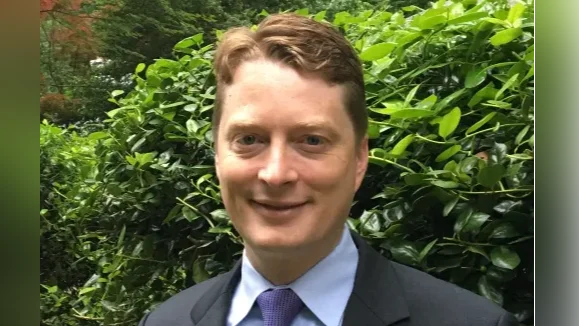Ryan Hass | Director at John L. Thornton China Center | The Brookings Institution website
U.S. President Donald Trump is set to visit Asia in late October 2025, with planned stops in Japan, Malaysia, and South Korea. The trip will include participation in the Asia-Pacific Economic Cooperation (APEC) summit, where key issues between the United States, China, and regional partners are expected to be discussed.
Jonathan A. Czin, a fellow at the John L. Thornton China Center, commented on recent developments between the U.S. and China. He noted that Chinese President Xi Jinping has moved from a defensive to an offensive posture ahead of his anticipated summit with President Trump. "After spending much of the past year reacting to U.S. policy, Beijing on October 9 announced expansive export controls on the rare earth elements supply chains. Regardless of whether one views Beijing’s move as a reaction or a provocation, it was a calculated gambit by Xi to take the initiative in the bilateral relationship," Czin said. He added that while Trump views summits as opportunities for dealmaking, Xi's approach is more methodical and strategic.
Czin further explained that recent U.S. concessions on technology and Taiwan may have been interpreted by Beijing as signs of American weakness. "The United States still has cards to play with China, but ever since the administration walked back its Liberation Day tariffs in the face of China’s retaliation, Beijing has concluded that Washington lacks the stomach to engage in an escalating trade war," he said.
Vanda Felbab-Brown, director at the Initiative on Nonstate Armed Actors, addressed Trump's demands on China ahead of his meeting with Xi at APEC 2025. "On October 19, Trump listed three demands on China before his meeting with Xi at the APEC 2025 summit: rare earths, fentanyl, and soybeans," Felbab-Brown stated. She noted that while negotiations on fentanyl have been ongoing, progress has stalled. She added, "One problem is that Trump’s demands that China prevent the flow of all fentanyl and fentanyl precursors to criminal groups are vague and unrealistic." Felbab-Brown also questioned whether any potential agreement would address key enforcement issues.
Ryan Hass, director at the John L. Thornton China Center, reflected on recent escalations in trade tensions. "There was optimism in the air in Washington in early October about President Trump’s upcoming meeting with Chinese President Xi Jinping," Hass said. However, he noted that subsequent announcements of new export controls and reciprocal actions by both countries led to renewed trade tensions. Hass concluded, "As dramatic as recent events have been, it bears recalling that neither leader’s interests would be served by uncontrolled escalation."
Patricia M. Kim, fellow at the Center for Asia Policy Studies, commented on the broader regional context of APEC. "As APEC leaders gather in Seoul for a summit under the banner of 'Building a Sustainable Tomorrow,' with its three pillars of strengthening regional connectivity, bridging the digital divide, and promoting sustainable growth, the gulf between the summit’s optimistic rhetoric and geopolitical reality has rarely been wider," Kim said. She described a "troubling normalization of weaponized interdependence" in the region.
Lynn Kuok, Lee Kuan Yew Chair in Southeast Asia Studies, noted that Southeast Asia is seeking stability rather than expecting major tariff reductions from the U.S. "Southeast Asia is not expecting significant U.S. tariff reductions, but the region aims to stabilize relations with the United States and create conditions for more constructive engagement—economic and otherwise," Kuok said. She pointed out that the Philippines has been the only country to see deepened ties with Washington recently.
Michael E. O'Hanlon, director of research at the Strobe Talbott Center for Security, Strategy, and Technology, emphasized the importance of addressing China’s support for Russia in any economic deal. "I believe the most important thing that Trump can do on his Asia trip is to seek an economic, trade, and investment deal with China that, in addition to the issues of broad tariffs and technology restrictions and rare earth minerals, also seeks a new understanding between Washington and Beijing on the Ukraine war," O'Hanlon stated.
Mira Rapp-Hooper, visiting fellow at the Center for Asia Policy Studies, highlighted that regional allies are watching Trump's approach to China closely. "When Trump meets with Xi on the sidelines of APEC, American allies and partners in the Indo-Pacific will be watching to learn who the United States stands with and what it stands for," she said.
Mireya Solís and Ariqa Herrera discussed Japan's position as it prepares to host Trump in Tokyo amid domestic political uncertainty. "The addition of a Tokyo stop to Trump’s regional tour is a win for Japan. Even though the White House has yet to articulate its broader Asia strategy and oscillates from confrontation to negotiation with China, the presidential visit underscores the value it places on the alliance with Tokyo," they wrote.
Andrew Yeo, senior fellow at the Center for Asia Policy Studies, noted that South Korea is eager to host international summits but that bilateral meetings are overshadowing APEC’s official agenda. "World leaders, including Trump and Xi, will soon convene in South Korea for APEC. As a middle power, South Korea relishes hosting high-profile international summits. However, as with other recent multilateral gatherings, such as the Group of Seven meeting in Canada, bilateral meetings like the upcoming Trump-Xi meeting are overshadowing the main event," Yeo stated.
The Brookings Institution emphasized that each publication reflects only the views of its authors.





